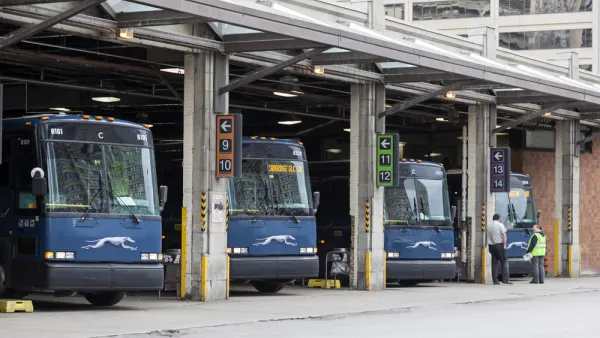A new report shows that low-carbon development policies can help to achieve numerous planning goals including job creation, improved safety and public health, social inclusion, and improved accessibility.

A new report, "The Economic and Social Benefits of Low-Carbon Cities: A Systematic Review of the Evidence," by University of Leeds researchers for the New Climate Economy's Coalition for Urban Transitions, examines the economic case for climate action through more resource-efficient urban planning. This comprehensive review shows that low-carbon measures can help to achieve a range of development priorities, such as job creation, improved safety and public health, social inclusion, and improved accessibility.
Co-benefits include:
- Congestion pricing has been found to reduce traffic, travel times, and congestion 10–30% (Section 2.2).
- Policies which promote liveable density have been shown to increase urban productivity by 3% for every doubling of urban density (Section 2.3.1).
- Public transport networks can reduce transport-related injuries by up to 80% (Section 2.1.5), create direct and indirect employment (Section 2.3.2), and improve public health (Sections 2.2.1, 2.2.2, and 2.1.4).
- Health benefits from dedicated cycle lanes vary from €0.30-1.20 per km (Section 2.1.4).
- Pedestrianisation produces health benefits several times larger than cost of investments (Section 2.1.4).
This evidence suggests that the benefits of these low-carbon measures extend far beyond emission reductions. The wider economic, social, and environmental impacts may be much more valuable than the financial returns associated with climate action. This bundle of measures could therefore provide a platform for more transformative change by building public enthusiasm for low-carbon urban development, as well as the institutional capacities, financing arrangements, and learning needed for more ambitious action.
FULL STORY: The Economic and Social Benefits of Low-Carbon Cities: A Systematic Review of the Evidence

Analysis: Cybertruck Fatality Rate Far Exceeds That of Ford Pinto
The Tesla Cybertruck was recalled seven times last year.

National Parks Layoffs Will Cause Communities to Lose Billions
Thousands of essential park workers were laid off this week, just before the busy spring break season.

Retro-silient?: America’s First “Eco-burb,” The Woodlands Turns 50
A master-planned community north of Houston offers lessons on green infrastructure and resilient design, but falls short of its founder’s lofty affordability and walkability goals.

Test News Post 1
This is a summary

Analysis: Cybertruck Fatality Rate Far Exceeds That of Ford Pinto
The Tesla Cybertruck was recalled seven times last year.

Test News Headline 46
Test for the image on the front page.
Urban Design for Planners 1: Software Tools
This six-course series explores essential urban design concepts using open source software and equips planners with the tools they need to participate fully in the urban design process.
Planning for Universal Design
Learn the tools for implementing Universal Design in planning regulations.
EMC Planning Group, Inc.
Planetizen
Planetizen
Mpact (formerly Rail~Volution)
Great Falls Development Authority, Inc.
HUDs Office of Policy Development and Research
NYU Wagner Graduate School of Public Service



























